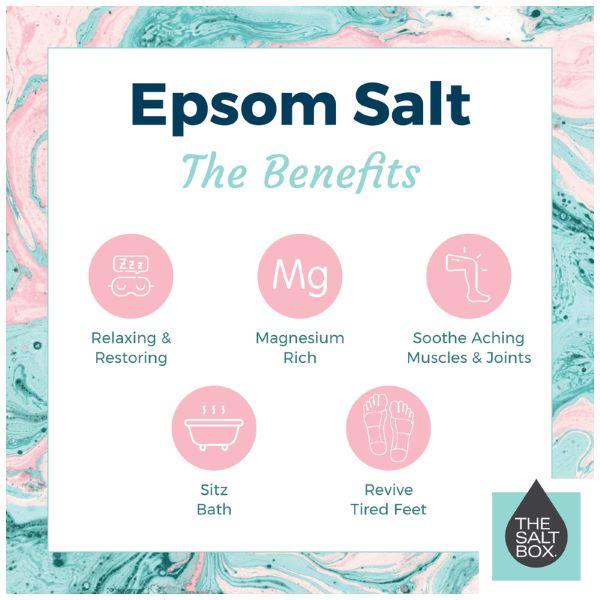One of the most common uses of Epsom salt is adding it to a warm bath to help soothe muscle pain, soreness or discomfort. As the fitness director and a wellness coach at Hilton Head Health, David Chesworth recommends Epsom salt baths to some of his clients as a way to help their body recover following a workout.

"After exercising, the benefit of Epsom salt comes from magnesium sulfate," he says. "Magnesium regulates your electrolyte balance, which is needed for calcium regulation and potassium absorption. In an Epsom salt bath, the magnesium ions are released in the water, which may help the body use up glucose and lactic acid, and may provide some relief from soreness, inflammation, and muscle cramps."
While there's plenty of anecdotal evidence that an Epsom salt bath can help you feel better after a workout, the research is still fairly sparse. For example, a 2006 study on the relationship between magnesium and physical activity did find that strenuous exercise (the kind that results in additional urinary and sweat losses) may increase a person's magnesium requirements by 10 to 20 percent. However, a 2017 study did not find any evidence that magnesium can be absorbed through the skin—including via a bath.
That said, taking a warm bath itself can help soothe achy muscles and joints, per the Cleveland Clinic, and adding Epsom salt to your bath isn't going to cause you any harm. If you find that a post-workout Epsom salt bath speeds up your recovery, there's no reason to stop (i.e., it's not going to harm you at all). If you've never taken one before and aren't sure where to start, Chesworth recommends dissolving two-thirds of a cup of Epsom salt in a bathtub filled with warm water, or one-quarter of a cup of it in a foot bath.
RELATED:Exactly What to Eat After You Exercise to Refuel and Recover Fast









